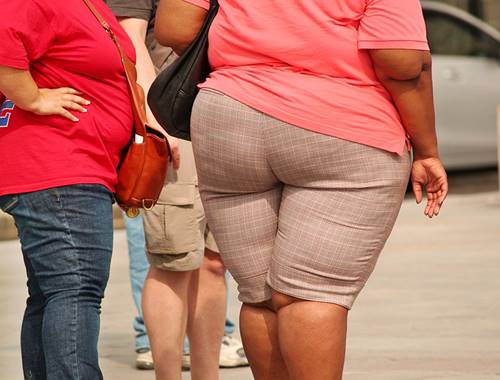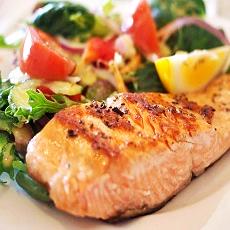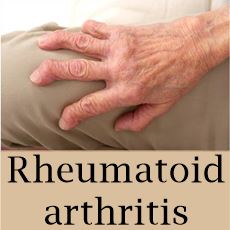Long-term Side Effects
A regular ketogenic diet is short, not more than 24 weeks. But long diets may involve health risks, as is the case of children treated with a keto diet to control seizures and neurological disorders.
Russel Wilder created the keto diet to treat pediatric epilepsy in 1921 and it was Wilder who coined the term "ketogenic diet." Some studies tracked the health effects of long term keto dieting in children (not in adults), and their findings are listed below (2).
- Hyperlipidemia (High cholesterol)
- Hepatic steatosis (fatty liver)
- Increase in Kidney stones
- Osteoporosis
- Impaired growth
- Hypoproteinemia (low levels of protein in the blood)
- Vitamin and mineral deficiencies
Nevertheless, the risks do not appear to be deadly because a study by Kosinski and Jornayvaz (2017) (3) found that subjects following a low-carb, high-protein diet were not affected "with higher mortality after 12 years of follow-up."
We will look into each of these adverse effects below.
Does a keto diet increase Cholesterol and Triglycerides?
The high quantity of fat required by a Keto Diet can cause some concern regarding the potential increase of blood lipids (cholesterol and triglycerides).
But the effect is the opposite; according to Paoli (2014) (4), most studies showed that a keto diet reduces total cholesterol and increases the "good" HDL-cholesterol. It also reduces triglycerides.
Regarding the "bad" LDL-cholesterol, the keto diet "increase[s] the size and volume of LDL-C particles which is considered to reduce cardiovascular disease risk since smaller LDL particles have a higher atherogenicity."
This means that unlike smaller LDL particles, the larger ones don't provoke the buildup of deposits on arterial walls.
The lower blood glucose levels caused by a low carb keto diet mean lower insulin levels that, in turn, hinder the activation of an enzyme that synthesizes cholesterol (the enzyme is called HMGCoA), resulting in a lower output of cholesterol.
Take-home point
There is a very low risk of high cholesterol or triglycerides due to a keto diet.
However, a long-term 22 weeks diet in mice produced high levels of blood lipids, an outcome that is completely different from the one found in human subjects.
Several studies have reported different outcomes in rodents in comparison to humans.
Keto diet's effects in mice and humans
The Ketogenic diet used in rodents is quite different from the one used in humans and the fat composition and fat-to-protein ratios are also different. These differences may lead to discrepancies reported by these studies.
These different reactions may be due to species differences in metabolism (3) and also the duration of the studies (22 weeks in the lifespan of a mouse is equivalent to several years in a human being).
However, the Keto Diet reduces all-cause mortality rate
Despite the risks mentioned further up, a 2024 study using data from 43,776 adult Americans conducted between 2001 and 2018 found that following a ketogenic diet (KD)lowered the death risk (mortality) due to all causes and cardiovascular (CVD) causes: "adherence to a KD exhibits potential in reducing all-cause mortality risk while not posing an increased threat of CVD-related fatalities."(10)
How long is it safe to be in ketosis?
Dashti (2004) (5) studied 83 obese subjects that followed a ketogenic diet for 24-weeks.
All of them lost weight and showed improvements in their total cholesterol, HDL, LDL, Triglycerides, and blood sugar levels.
The scientists concluded that "the present study confirms that it is safe to use a ketogenic diet for a longer period of time than previously demonstrated."
The ketogenic diet and cardiovascular disease
We have not found studies indicating any negative side-effects regarding heart disease, such as heart palpitations.
On the contrary, the effects reported are positive ones (For more details, visit our Keto Diet Review page).
Fatty Liver
The same long term (22-week) study found that mice developed hepatic steatosis or fatty liver (3).
Kosinski and Jornayvaz (3) reviewed three meta-analyses (studies that group other studies to find statistical correlations that link different variables) involving mice and found that the KD provokes liver inflammation or fatty liver (Non-alcoholic Fatty Liver Disease or NAFLD).
Studies involving human subjects have not managed to replicate these findings. So the case is open whether a Keto Diet can induce, or on the contrary, improve NAFLD in humans (Haghighatdoost, 2016) (6).
KD as a treatment for NAFLD in humans?
Haghighatdoost also found that low-carb diets reduced liver fat content in subjects with NAFLD.
Take-home point
Liver effects of a Keto diet were negative in rodents, but not reported in humans.
Protein intake and the kidneys
Kidney Stones
One of the negative effects on the kidneys is due to an excessive intake of protein. But this shouldn't be the case with a Keto Diet.
Because, as Paoli (2014) (4) points out that "a ketogenic diet is not, strictly speaking, a Low carb ⁄ High Protein; Keto Diet is mainly a very low carbohydrate diet with a normal amount of protein."
Yet even though the ketogenic diet is a very low-carb, moderate-protein, and high-fat diet, those who follow it may tend to ingest more protein than recommended, or increase ingestion to levels higher they normally eat.
This excess protein may be avoided by following the protein intake values set down in your ketogenic diet macros.
The problem is that the extra protein will be broken down into their amino acid building blocks, which in turn, can be converted into glucose.
Extra glucose will lower ketones, increase insulin levels, and interfere with ketosis.
The breakdown of additional proteins produces nitrogen in a toxic form: ammonia. The liver converts ammonia into urea, which is almost non-toxic and soluble in water. The kidneys then excrete the urea into the urine.
Uric acid, on the other hand, is the result of the breakdown of nucleic acids and purines. The latter is very common in different kinds of foods: animal-based protein, red meat, organ meats, and shellfish. It is also excreted in the urine.
However, high production of uric acid may generate an acid load that acidifies the urine and makes it easier for uric acid stones to form in the kidneys.
Approximately 1 in every 20 children on an epileptic keto diet suffer from kidney stones, and they are treated with potassium citrate to prevent them (7).
Take-home point
Avoid kidney stones by following your protein macro values. Don't overeat protein.
Other kidney issues
Is there a risk of kidney pain during ketosis?
The protein component of a keto diet results in higher amounts of amino acids, which may trigger high blood pressure.
People suffering from renal insufficiency, metabolic syndrome, or obesity-related health conditions may be more susceptible to the high blood pressure side effects.
As a positive note, Paoli (4) mentioned that a "very low carb keto diet" reverted diabetic kidney damage in mice.
Take-home point
If you have renal issues, don't follow a ketogenic diet.
Osteoporosis and stunted growth
Some studies with rats, (4) revealed that a keto diet causes a reduction in a hormone known as IGF-I or IGF-1 (insulin-like growth factor 1).
As its name suggests, it is a protein very similar in its structure to insulin. It promotes growth in children and correct body functions in adults.
So it may have an impact on children following long-term ketogenic diets.
Rat studies also show that a Keto diet impairs bone mass density. These mice studies lasted 4-weeks (a very long time in comparison to their lifespan).
But "recently published articles suggested that there is not a negative effect on bone health" (4).
Take-home point
Studies in rats following a Keto Diet showed osteoporosis and weaker bones.
Vitamin deficiencies
Vitamin deficiencies in long-term keto diets (such as those used in epileptic children) may arise from the lack of fresh fruits and vegetables in their very low-carb diet.
Supplementation should cover any vitamin or mineral needs. Raw and cooked veggies should be part of your keto diet.
Take-home point
Take your regular multivitamin supplement while dieting and eat vegetables.






